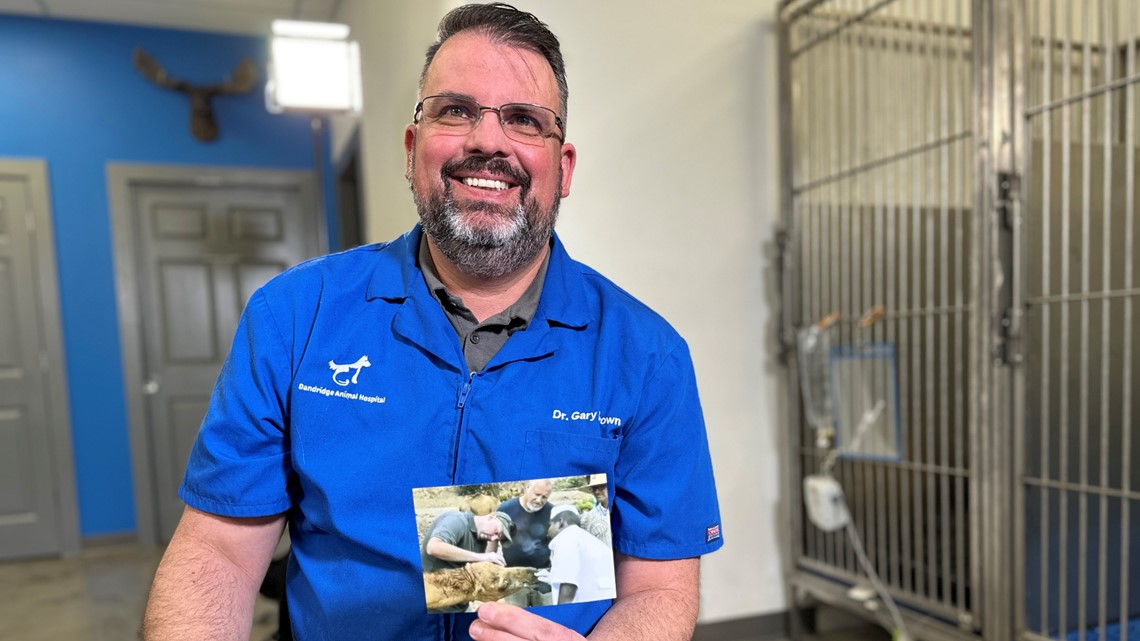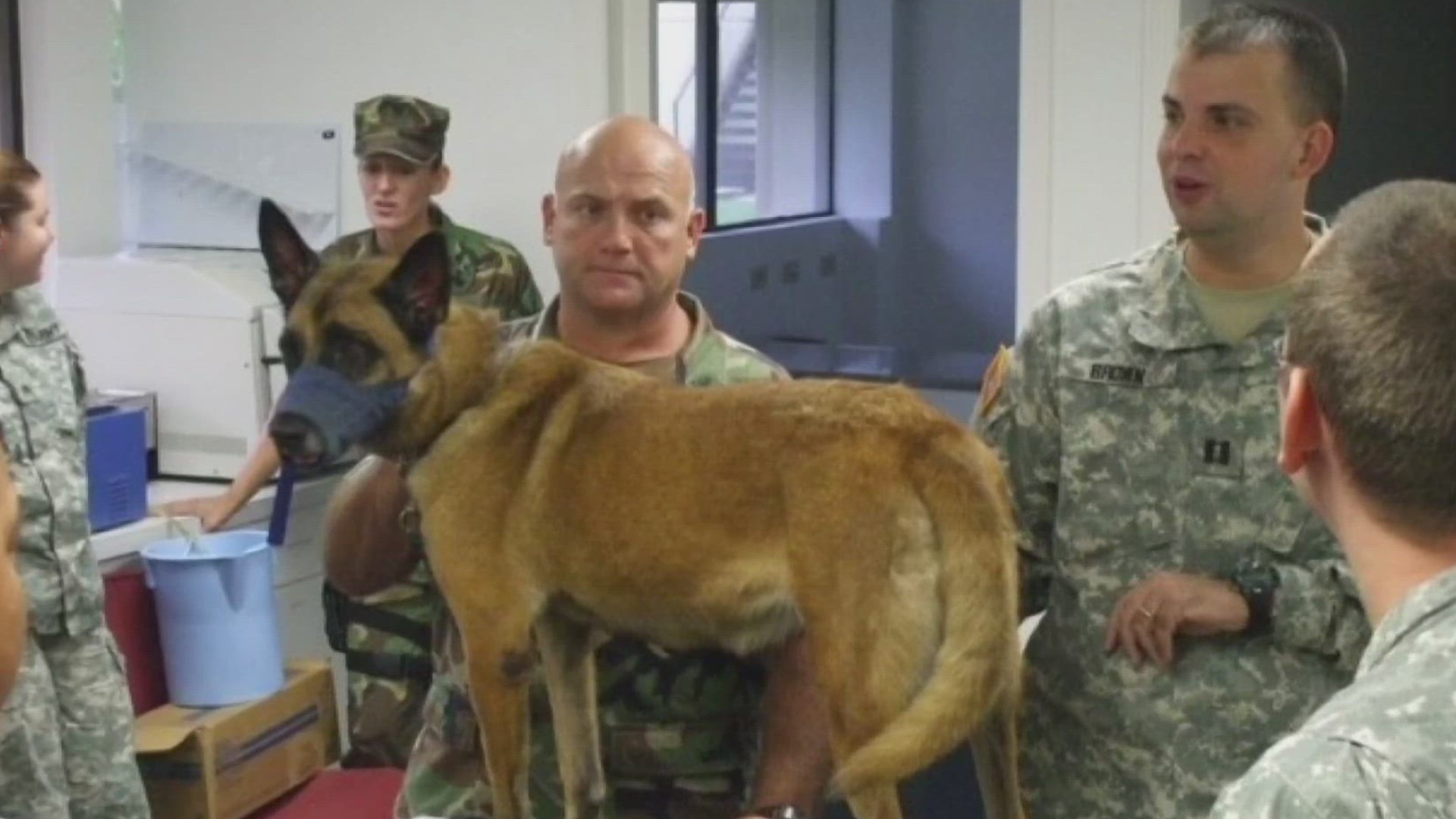KNOXVILLE, Tenn. — Army veteran Dr. Gary Brown said he has no doubt caring for war dogs is the best job in the military.
“I love working with the people with the fellow soldiers, the sense of family that it becomes, but also I get to work with the most amazing dogs,” said Dr. Brown, who operates the Dandridge Animal Hospital after serving almost three decades on active and reserve duty.
“Each working dog generally has about two jobs, they are part of patrol work, where they will patrol with their military handler and do security. They also will aid in finding, whether it's enemy or lost people or chasing down people entering and clearing buildings. But they'll also be used for their ability to smell and detect,” said Dr. Brown.
During his almost 30 years of military service, Dr. Brown said the 10th Mountain Division witnessed such success using dogs in Afghanistan. His care center based at Fort Drum, New York tripled the number of war dogs in its care almost overnight between 2008 and 2009.
“We went from being responsible for 20 to about 60, more on top of that, and suddenly, we were doing veterinary care for 80 dogs,” said Dr. Brown.
But he also deployed overseas to Africa. A memorable duty included helping locals understand the best way to treat eye infections in camels.


"We did a lot of education as well for some of the handlers who didn't understand some of the basic concepts of veterinary care," said Dr. Brown.
The small animal veterinarian said dogs have been a part of the military in some degree dating back to the American Revolution. For decades the military classified dogs as they would a gun or a helmet: They were "property."
In recent years, thanks to lobbying by troops, the military updated the classification making it easier for handlers to adopt those war dogs after their service, ensuring they receive fitting care and respect they earned in retirement.

